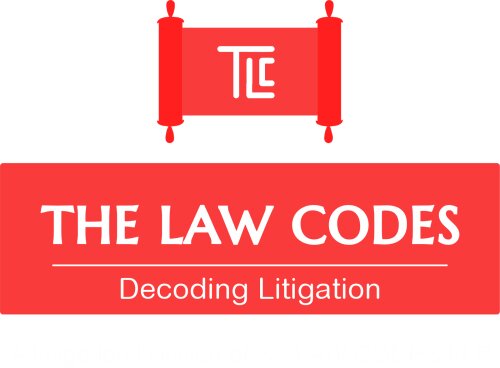Best Space Law Lawyers in Chandigarh
Share your needs with us, get contacted by law firms.
Free. Takes 2 min.
List of the best lawyers in Chandigarh, India
About Space Law in Chandigarh, India
Space Law in Chandigarh, India, is a burgeoning field that deals with the legal aspects of space activities, encompassing both regional and international regulations. As India advances in its space exploration and satellite deployment, the need to navigate the complex legal landscape is becoming increasingly important. Chandigarh, as a significant hub for legal education and practice in northern India, is emerging as a center for addressing issues related to space law. While India adheres to international treaties on space, localized legal practices and considerations are necessary for specific cases, which could encompass satellite communication, commercial exploration, and issues of space debris within the scope of both national and international space law frameworks.
Why You May Need a Lawyer
There are several situations where you might require legal assistance in the area of space law:
- Launching a satellite or space object that requires compliance with domestic and international regulations.
- Engaging in commercial agreements related to space technology and payload delivery.
- Resolving disputes over satellite frequencies or orbital slots.
- Understanding liability issues arising from space debris or accidents during space operations.
- Negotiating collaborations in space research and technology development with international partners.
- Navigating the regulatory approvals for space tourism and associated services.
Local Laws Overview
Space law in Chandigarh, and broadly in India, is largely guided by national legislation influenced by international treaties to which India is a signatory, such as the Outer Space Treaty of 1967. However, local legal frameworks and specific guidelines from bodies like the Indian Space Research Organisation (ISRO) play a crucial role in operationalizing these treaties. Key aspects include:
- National space policies governing satellite launches and communications.
- Licensing requirements for entities operating within India's aerospace sector.
- Intellectual property laws as applied to space technologies and inventions.
- Liability laws regarding damage caused by space operations within or outside India’s territory.
- Compliance with international cooperation norms and bilateral treaties related to space research.
Frequently Asked Questions
What is space law?
Space law encompasses international and domestic laws that govern activities in outer space, including satellite deployment, space exploration, and related commercial activities.
Does India have its own space law?
While India does not have a standalone space law, it adheres to international conventions and has national policies enforced through organizations like ISRO.
Can individuals file claims for satellite damage?
Yes, if a satellite launch results in damage, affected parties can seek legal recourse based on national liability laws and international guidelines.
Are there regulations for space tourism in India?
As of now, explicit regulations for space tourism in India are developing, but companies must adhere to existing national aerospace policies and international space law.
What are space treaties?
Space treaties are international agreements that govern activities in space, such as the Outer Space Treaty, Rescue Agreement, and Liability Convention.
Who enforces space law treaties in India?
The Indian government, primarily through the Ministry of External Affairs and ISRO, is responsible for implementing space treaties within India.
What is ISRO's role in space law?
ISRO plays a critical role in formulating and enforcing space policies, ensuring compliance with both domestic and international legal frameworks.
Is commercial space activity regulated in India?
Yes, commercial space activities like satellite launches and communications are regulated under specific government policies and ISRO guidelines.
Do private companies in India need a license for space operations?
Yes, private companies must acquire necessary licenses and clearances from national authorities for conducting any space operations.
What should be done in case of a legal dispute in space law?
Parties should seek assistance from legal experts specializing in space law to navigate disputes, potentially leveraging domestic courts or international arbitration if required.
Additional Resources
For further assistance and updated information on space law in Chandigarh, India, consider consulting the following resources:
- Indian Space Research Organisation (ISRO)
- Centre for Air and Space Law, NALSAR University of Law
- Indian Ministry of External Affairs (Space Division)
- Space Law Committee, International Bar Association
Next Steps
If you require legal assistance in space law, it is advised to take the following steps:
- Identify the specific nature of your legal requirement or issue.
- Research potential law firms or legal practitioners in Chandigarh with expertise in space law.
- Schedule consultations to discuss your case and seek advice on your legal options.
- Stay informed about any changes in local and international space law regulations, as they can affect legal proceedings and obligations.
Lawzana helps you find the best lawyers and law firms in Chandigarh through a curated and pre-screened list of qualified legal professionals. Our platform offers rankings and detailed profiles of attorneys and law firms, allowing you to compare based on practice areas, including Space Law, experience, and client feedback.
Each profile includes a description of the firm's areas of practice, client reviews, team members and partners, year of establishment, spoken languages, office locations, contact information, social media presence, and any published articles or resources. Most firms on our platform speak English and are experienced in both local and international legal matters.
Get a quote from top-rated law firms in Chandigarh, India — quickly, securely, and without unnecessary hassle.
Disclaimer:
The information provided on this page is for general informational purposes only and does not constitute legal advice. While we strive to ensure the accuracy and relevance of the content, legal information may change over time, and interpretations of the law can vary. You should always consult with a qualified legal professional for advice specific to your situation.
We disclaim all liability for actions taken or not taken based on the content of this page. If you believe any information is incorrect or outdated, please contact us, and we will review and update it where appropriate.








